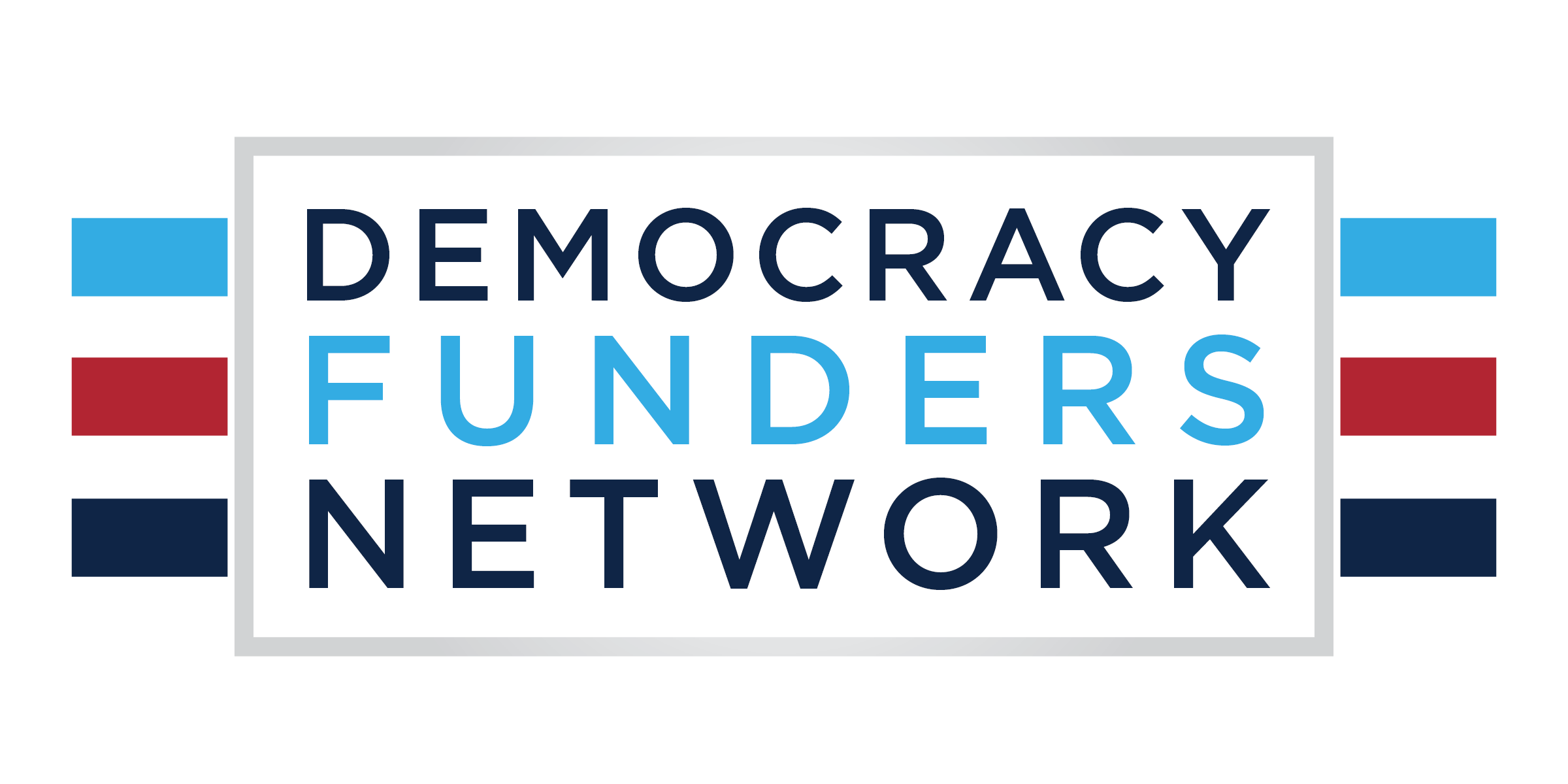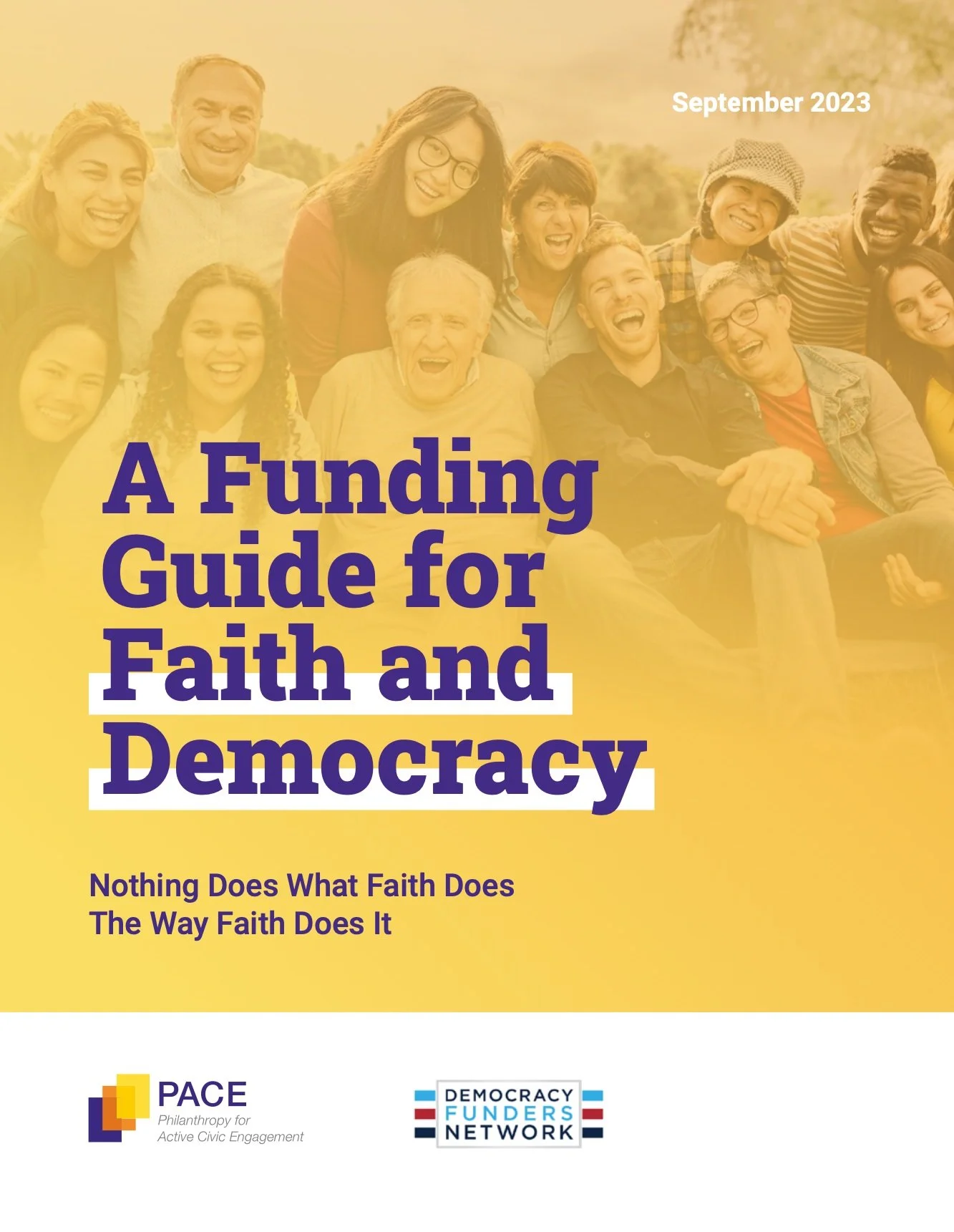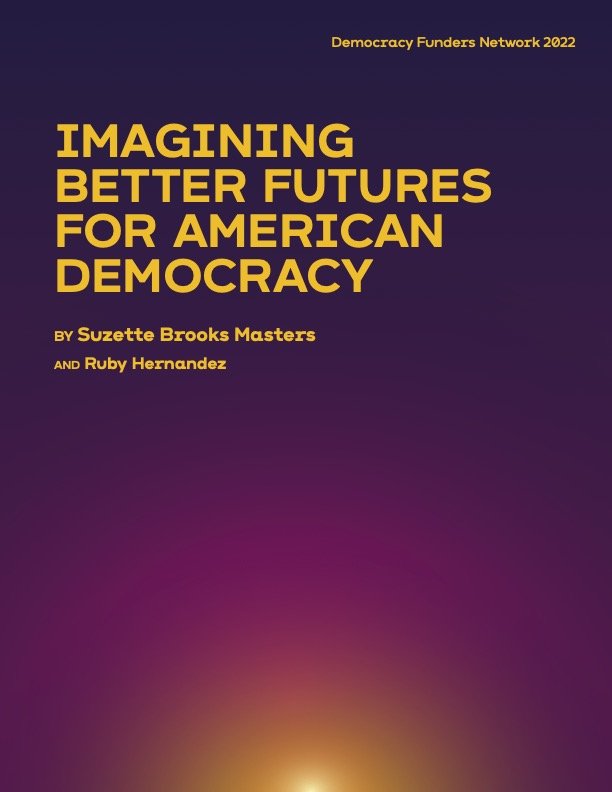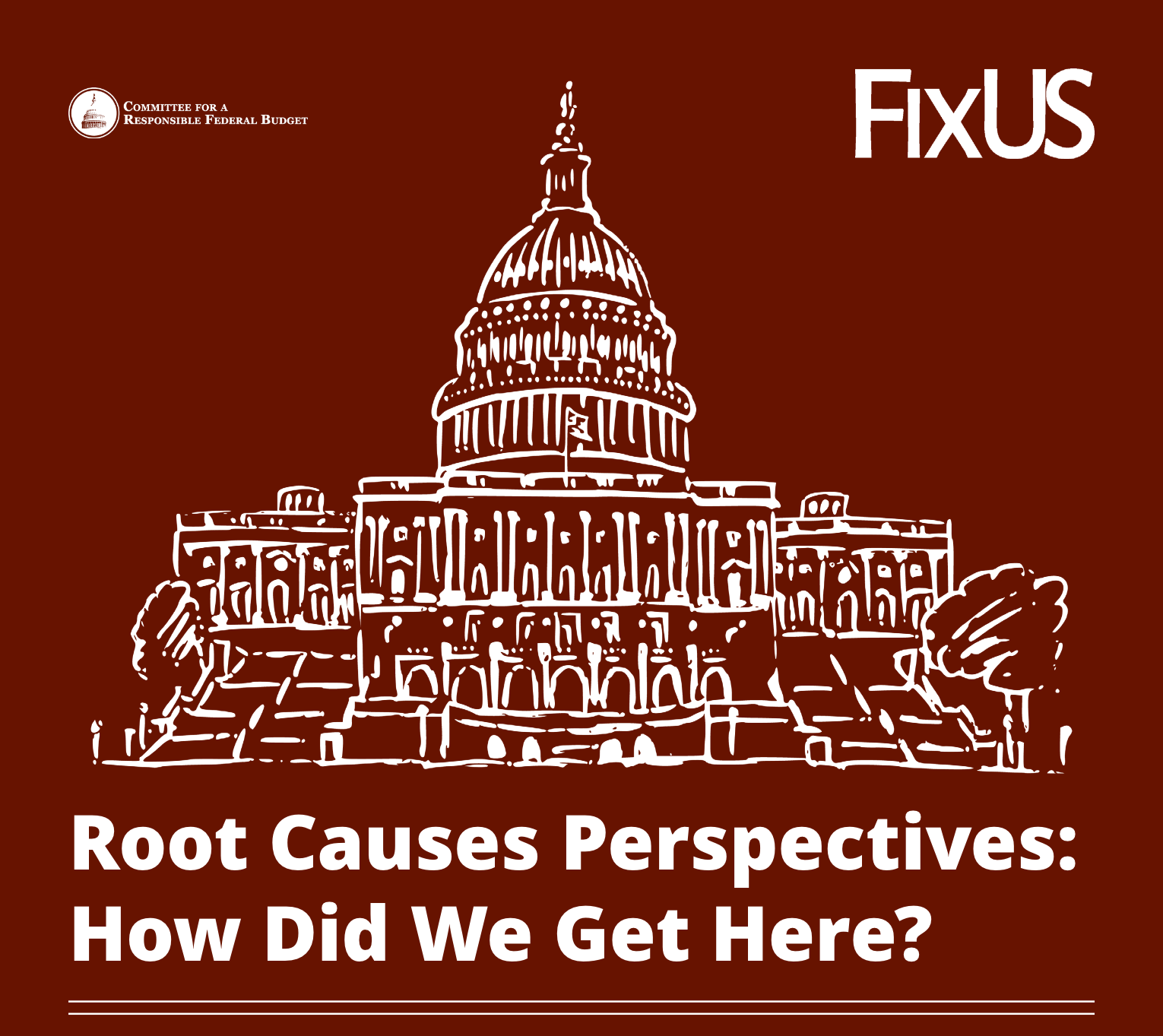Moving Beyond Election-Centric Democracy Philanthropy
The Democracy Fund recently launched a new sign-on letter aimed at encouraging funders to continue supporting their democracy grantees beyond Election Day. We at the Democracy Funders Network (DFN) echo this sentiment and applaud Democracy Fund’s leadership in the space. Rather than simply signing on to the letter, however, we wanted to issue a “concurring opinion” to elaborate on some of its key points and deepen the conversation about the challenges highlighted in the letter, along with some potential solutions.
Here are three key things we hope every democracy funder will take away from the letter:
1) Revitalizing liberal democracy in the U.S. is a years-long task, and we need funders to be in it for the long haul. No matter who wins the presidential election in a few weeks, American democracy will remain fragile. The worst thing funders can do in response to the election is to walk away—either out of a sense of hopelessness or overconfidence about democracy’s prospects. It will admittedly not be easy for some to muster the energy to keep going in either circumstance, but what will all the resources we’ve devoted to protecting and revitalizing our democracy be for if we abandon the effort midstream?
While it may be too late to ask most funders to develop their 2025 strategies before knowing the outcomes of the election and the dynamics of the post-election environment, it is essential that donors begin considering the possibility of creating a multi-year democracy strategy that stretches beyond the next presidential election cycle. We agree with the letter’s call for multi-year funding as the gold standard that helps to create stronger organizations and a more stable field, and we encourage all funders to use it with their existing grantees wherever possible. We also recognize that funders often face various structural and psychological barriers to providing extensive multi-year funding. For those who are hesitant, a multi-year strategy can still create more stability in your grantmaking that can in turn help bolster your grantees and the broader field.
What if every democracy donor went through the exercise of developing a five-year strategy? Such a strategy would not need to be a rigid plan that locks in all your funding and activities far in advance; the best strategies are guides that can be reviewed and revised along the way. If democracy funders writ large pursued this approach, we believe our collective resources would ultimately go a lot farther. Even more so if we do some of this strategy development together. (Expect to hear from DFN on this front soon).
2) Democracy is about more than elections, so those of us who care about it need to ensure we are not just scaling up our giving in election years. The “Election Day to Every Day” letter addresses an incredibly challenging dynamic in democracy giving: the boom-and-bust cycle through which donors ramp up their giving in election years and then retract it immediately after each election. This kind of giving is highly inefficient at best and ineffective at worst. We are not going to solve the problems facing our democracy investing election cycle by election cycle, nor will this approach allow us to move from a reactive posture to a proactive one. By funding in this manner, we miss the opportunity to strengthen local civic life and ongoing civic engagement, improve the capacity of the state to deliver for its citizens, rebuild independent journalism, and combat polarization, among dozens of important priorities. As Daniel Stid has argued in A Framework for Democracy Philanthropy, democracy funders will find “more room to maneuver” if we can focus greater resources on long-term efforts in communities and fewer on near-term national politics.
Additionally, the more we let underlying problems fester by overweighting our resources on elections and in election years, the more expensive our elections become. Estimates are that upwards of $16 billion will be spent in partisan political giving alone this year, which is about half of what the entire democracy space raised in 2022, the last year for which we have solid data, according to the new U.S. Democracy Hub.
While the boom-and-bust cycle is most pronounced for organizations that do election-related work such as voter registration, election administration, crisis preparation, and combatting disinformation, it is also true for just about every kind of organization in the field. Whatever you fund, your grantees—and the issues they work on—need steady support. We know how difficult this can be in practice, as the boom-and-bust cycle is at least in part due to a very human dynamic: we often feel compelled to “go big” when it comes to elections, but most of us cannot sustain that level of giving year after year. Moving beyond this cycle doesn’t mean you can’t give less next year, but it does mean not letting your grantees starve in 2025. More importantly, it means resisting the temptation to go meaningfully bigger in 2026 and 2028 and instead finding a steady state for your democracy giving. (Here again a five-year strategy can help). The only way to solve long-term problems—and to do so at anything approaching a reasonable cost—is with long-term strategies and long-term commitment.
3) The work of protecting American democracy is becoming increasingly fraught, and funders need to be cognizant of how they and their grantees can remain both safe and effective. Fighting for a more just and inclusive democracy has always been difficult, but the level of threat facing those working to defend our democracy—election administrators, disinformation researchers, grassroots organizers, journalists, funders, and many others throughout the system—has grown to extreme levels. Funders need to be investing in the safety and security of their grantees and the broader field, and they also need to be taking their own operational security seriously. (DFN can be a resource on both fronts). This is true across civil society, not only in the democracy space: as American politics becomes more polarized and autocratic actors seek opportunities to undermine U.S. democracy, funders and nonprofits—as independent sources of power in American life—are increasingly being targeted. This is only likely to grow in the coming years—again, no matter who is president.
Finally, funders looking to remain both safe and effective, and who would like to see their grantees do the same, will need to re-examine some of their core assumptions and approaches as they develop new strategies. We should all be inspired daily by the groups fighting for our democracy, but we should also be cognizant that many of the forces we have been up against in recent years, including toxic polarization, rampant misinformation and disinformation, threats to core democratic institutions, and support for authoritarian politics, have grown worse. We in philanthropy owe it to American democracy to be thoroughly introspective about where our efforts are failing—and even where they may be making things worse. For instance, when funders and organizations feel under threat, we tend to become both more polarized and polarizing. But in an era of “high conflict,” donors may want to reconsider funding initiatives that further polarize, radicalize, or increase misunderstanding and dysfunction in our society.
Only by remaining fully engaged—financially, emotionally, and intellectually—can we carry on the work of ensuring the U.S. is a robust liberal democracy a century from now. Here’s hoping we are up to the task.

















